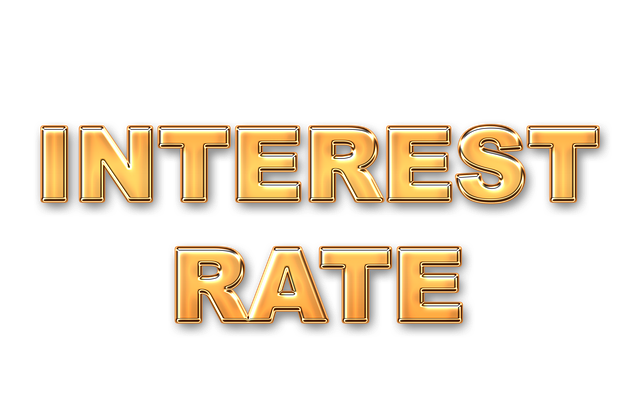What are Small Business Loans?
Small business loans are financial products designed to meet the funding needs of small business owners. These loans come in various types, such as term loans, lines of credit, commercial real estate loans, and SBA loans.
Small business owners can use these financing options for various purposes like purchasing inventory, covering operating expenses, or investing in expansion opportunities. The benefits of obtaining small business financing include access to necessary working capital and maintaining steady operations during lean periods.
Purpose and Benefits
The primary purpose of small business lending is to support business owners in achieving their goals by providing the necessary financial resources. This could mean securing funds for launching a new product line or sustaining day-to-day operations during slow seasons. By obtaining a loan, entrepreneurs can seize growth opportunities that might otherwise be unattainable due to financial constraints.
One key benefit of acquiring small business funding is the ability it provides for businesses to manage cash flow effectively. For instance, if an unexpected expense arises or customers delay payments, having access to additional capital through a line of credit can help bridge the gap without disrupting regular operations.
Key Factors Before Applying
Before applying for a small business loan, there are several crucial factors that business owners should consider:
- Loan Amounts: Determine the specific amount needed based on precise calculations.
- Repayment Terms: Understand the repayment structure, including interest rates and timelines.
- Creditworthiness: Assess personal and business credit scores which influence loan terms.
- Business Model Viability: Ensure that the planned use aligns with long-term profitability.
- Alternative Options: Explore other sources of financing, such as grants or crowdfunding.
How do Small Business Loans work?
Small business loans are a crucial aspect of business financing. Small business owners can apply for a loan tailored to their specific needs when they need extra funds. For instance, if a small business owner requires money to purchase new equipment or expand their operations, they would apply for an amount that aligns with these requirements.
Prospective borrowers have the flexibility to choose from various financing options, such as term loans, lines of credit, or SBA loans. Each option comes with its own set of terms and conditions designed to suit different types of businesses. This allows business owners to select the most suitable financing method that aligns with their unique circumstances.
Determining Loan Terms
Once the loan application is approved, the next step involves determining the loan terms and repayment details. The loan term refers to the period within which the borrowed amount must be repaid in full. It’s important because it directly impacts how much interest will accrue over time.
The repayment terms are also critical as they outline how often payments must be made (e.g., monthly or quarterly) and whether there are any penalties for early repayment. These factors play a significant role in helping small business owners make informed decisions about managing their cash flow while meeting their financial obligations.
Working Capital Needs
The working capital needs of a business play a pivotal role in shaping its borrowing requirements. For example, seasonal businesses may require additional funding during peak seasons to manage inventory and staffing costs before sales revenue starts flowing in steadily again.
Understanding these fluctuations enables small business owners to assess when they might need extra funding and plan accordingly by applying for loans ahead of time. Doing so ensures they can access sufficient working capital when it’s most needed without disrupting regular operations due to cash flow constraints.
How do I qualify for a Small Business Loan?
Most lenders and financial institutions determine loan eligibility by assessing the prospective borrower’s creditworthiness and the business’s viability. Here are some of the crucial factors that determine small business loan qualifications.
Credit Score
When applying for a small business loan, your credit score is crucial in determining your eligibility. Lenders often consider the personal credit scores of business owners, especially for small businesses without an extensive business credit history. A higher credit score indicates responsible financial behavior and increases the chances of qualifying for a loan with favorable terms.
Maintaining a good personal credit score is essential because it reflects your ability to manage finances responsibly. For example, making timely payments on existing debts and keeping credit card balances low can positively impact your credit score. Ensuring that there are no errors on your credit report is vital, as inaccuracies could negatively affect your eligibility for a small business loan.
Financial Records
In evaluating small business loan applications, lenders closely examine financial records such as profit and loss statements, balance sheets, and tax returns. These documents provide insights into the financial health of your business and its ability to repay the borrowed funds. Keeping accurate and up-to-date financial records demonstrates transparency and accountability, which are favorable attributes in the eyes of lenders.
Maintaining organized financial records improves your eligibility for a small business loan and facilitates efficient decision-making within your company. It provides valuable insights into cash flow patterns, revenue trends, and overall profitability – all of which contribute to better management practices.
Steps to Improve Eligibility
To enhance their qualification requirements for small business loans, entrepreneurs can take proactive steps such as managing debt levels effectively by paying down existing debts or consolidating them where possible. Demonstrating consistent revenue growth through robust sales strategies can also bolster eligibility prospects.
Moreover, being prepared with a well-thought-out business plan that outlines how the borrowed funds will be utilized showcases diligence and foresight – qualities that resonate positively with potential lenders.
What were the most popular Small Business Loans in 2023?
Small business owners in 2023 showed a preference for short-term loans to address their working capital needs. These types of loans were favored because they provided quick access to funds, allowing businesses to cover immediate expenses or take advantage of growth opportunities without committing to long-term debt. For instance, a small retail store might need a short-term loan to purchase additional inventory during the holiday season.
Prospective borrowers sought financing options that offered flexible loan terms in 2023. This flexibility allowed them to tailor the repayment schedule according to their cash flow and revenue patterns. Such options proved beneficial for seasonal businesses that experience fluctuations in income throughout the year. For example, a landscaping company might benefit from flexible loan terms during off-peak months when revenues are lower.
Varied Loan Amounts
The amount of funding required by small business owners varied significantly based on their specific business models and financial needs. Some businesses may have needed smaller amounts for day-to-day operations, while others sought more significant sums for expansion or investment purposes. For instance, a tech startup might require substantial financing for research and development activities, whereas a local bakery may only need modest funding for equipment upgrades.
Interest rates and detailed loan information were integral to the decision-making process for prospective borrowers seeking small business lending solutions in 2023. Interest rates directly impact the overall cost of borrowing and could significantly affect the profitability of utilizing borrowed funds for various purposes, such as expansion or inventory management. Moreover, comprehensive details about fees, repayment schedules, and potential penalties helped borrowers evaluate whether a particular loan aligned with their financial objectives.
What are the Best Business Loans of 2024?
Small businesses in 2024 have access to a wide array of financing options tailored to their specific needs. Whether it’s working capital for day-to-day operations or long-term financing for significant investments, prospective borrowers can choose from various lending products.
In addition to the traditional loan products offered by banks and credit unions, there has been an increase in online lenders providing quick and accessible funding solutions. This diversity in financing options allows small business owners to select the most suitable type of loan that aligns with their unique financial requirements.
Flexible Loan Terms
The best business loans of 2024 come with flexible loan terms, allowing borrowers to customize repayment schedules based on their cash flow projections. For instance, some lenders offer short-term loans ranging from three months to one year, while others provide longer repayment periods extending up to five years or more. This flexibility enables small businesses to match their loan terms with the anticipated revenue streams from their next business venture.
Moreover, many lending institutions are incorporating adjustable interest rates into their offerings to respond to market fluctuations. By opting for variable interest rates instead of fixed ones, borrowers can take advantage of potential decreases in interest expenses over time.
2024 Small Business Loan Options
The following small business loans are available through our lender network.
- Max funding amount: $1k – $1 million.
- Factor rates: Starting at 1%-6% p/mo.
- Term: Up to 36 months.
- Funding speed: 1-3 business days.
A business line of credit is a flexible financing option that allows small businesses to access funds up to a predetermined limit. It functions like a credit card, allowing companies to borrow and repay funds as needed. This type of financing is ideal for managing cash flow, covering unexpected expenses, or taking advantage of growth opportunities.
- Max funding amount: $10k – $5 million.
- Factor rates: Starting at 1%-4% p/mo.
- Term: 3 months – 5 years.
- Funding speed: 1-3 business days.
Business term loans are a common form of financing for small businesses. They provide a lump sum of capital repaid over a set period, typically with a fixed interest rate. These loans are often used for significant investments or to support ongoing business operations.
- Max funding amount: Up to $5 million per piece of equipment.
- Factor rates: Starting at 3.5%.
- Term: 1 – 10 years.
- Funding speed: 3-10 business days.
Equipment financing involves obtaining a loan or lease to purchase new equipment for a small business. This option allows businesses to acquire essential machinery or technology without a considerable upfront cost. The equipment serves as collateral for the loan, making it a viable option for businesses with limited capital.
- Max funding amount: $10k – $10 million.
- Factor rates: Starting at 1% p/mo.
- Term: Up to 24 months.
- Funding speed: 1-2 weeks.
Invoice factoring is a financing option where businesses sell their accounts receivable to a third-party company at a discount. This provides immediate cash flow for the business, as they receive a percentage of the invoice amount upfront. The factoring company then collects the total amount from the customer.
- Max funding amount: $5k – $1 million.
- Factor rates: Starting at 1%-6% p/mo.
- Term: 3 – 24 months.
- Funding speed: 1-2 business days.
Merchant cash advances are a form of financing where a business receives a lump sum in exchange for a percentage of future credit card sales. Repayment is made through daily deductions from the business’s credit card transactions. This option is popular for small businesses with fluctuating sales and inconsistent cash flow.
- Max funding amount: $50k – $5.5 million.
- Interest rates: Starting at Prime + 2.75%.
- Term: 10 – 25 years.
- Funding speed: 8 – 12 weeks.
SBA loans, backed by the Small Business Administration, offer low-interest rates and flexible terms for small businesses. SBA loan options include 7(a) loans for general purposes, CDC/504 loans for real estate and equipment, and microloans for smaller financing needs. These loans provide crucial financial support for small businesses to thrive.
- Max funding amount: $1k – $5 million.
- Factor rates: Starting at Prime + 2.75%.
- Term: 3 months – 10 years.
- Funding speed: 1-3 business days.
Working capital loans provide small businesses with the necessary funds to cover day-to-day operational expenses, such as payroll and inventory. These short-term loans are designed to help businesses maintain smooth cash flow and are often used to bridge gaps in revenue and expenses.
Frequently Asked Questions
Here are the most common questions about small business loans in 2024.
What financing trends will impact Small Business Loans?
Small business owners in 2024 can expect to see a variety of financing options become increasingly available. These may include lines of credit, equipment financing, and even newer options such as crowdfunding or peer-to-peer lending. With these diverse choices, prospective borrowers will likely find securing the necessary funds for their ventures easier.
The rise of alternative lenders and online platforms has also made it possible for small businesses to access trade finance and other specialized forms of funding that were previously harder to come by. This broadening landscape allows entrepreneurs to explore different avenues when seeking financial support, catering specifically to their unique needs.
Increasing Demand for Working Capital Loans
In 2024, there is expected growth in demand for working capital loans, which provide funding to cover day-to-day operational expenses like payroll, rent, utilities, inventory purchases, etc. – especially when cash flow may be tight due to seasonal fluctuations or unexpected challenges.
As more small businesses recognize the value of having readily accessible working capital at their disposal, they will likely seek flexible financing solutions tailored specifically toward meeting these short-term financial needs.
Technology-Driven Changes
Advancements in technology continue revolutionizing the loan application process by streamlining procedures and expediting decision-making timelines. Online applications have made it quicker and easier for borrowers to submit required documentation digitally without visiting a lender’s office in person.
This shift toward digitization enhances convenience and increases transparency throughout the application process while reducing administrative burdens on both sides. By embracing digital platforms with robust algorithms capable of predicting creditworthiness based on various data points, lenders can efficiently assess risk factors associated with potential borrowers’ applications.
Will Business Loan interest rates rise in 2024?
Prospective borrowers may face rising interest rates on business loans in 2024. The Federal Reserve’s decision to increase the federal funds rate could directly impact the interest rates for small business loans. As a result, businesses seeking financing should be prepared for potential increases in the cost of borrowing money.
Lending institutions, including banks and investment firms, will likely adjust their loan details and repayment terms accordingly due to changes in the federal funds rate. This adjustment is crucial as it directly affects how much it costs for businesses to borrow money from these institutions. Interest rates largely depend on the lender and loan type.
Monitoring Changes
Small businesses looking for financing options should closely monitor changes in loan terms and competitive rates offered by various lending institutions. By staying informed about these changes, they can make well-informed decisions when applying for loans or considering refinancing options.
It’s important for small business owners to understand that even slight fluctuations in interest rates can significantly impact their overall loan amount and repayment terms. For example, a seemingly minor increase in the interest rate could lead to substantially higher total payments over the life of a loan.
Adapting to Market Conditions
The banking industry will likely respond swiftly to any shifts brought about by changes in federal policies or market conditions. In response, bankers at lending institutions will need to adapt their offerings based on these new conditions while striving to remain competitive within the marketplace.
Why are banks slowing down Business Lending?
Many banks are indeed slowing down business lending due to the increased risk and uncertainty in the current economic climate. With unpredictable economic factors, bankers are becoming more cautious about extending loans to small business owners.
This caution stems from the potential risks associated with providing financing during uncertain times. The current economic landscape has created an environment where bankers are tightening their lending criteria, making it more challenging for small business owners to access the necessary funds for their operations or expansion plans.
This heightened scrutiny is a response to the inherent risks of lending in an uncertain market. Consequently, small businesses seeking financial assistance may encounter stricter requirements when applying for loans, as banks aim to mitigate potential losses.
Regulatory Pressure and Capital Reserves
Furthermore, the banking industry is facing pressure from regulators to maintain higher capital reserves. In compliance with these regulations, banks must ensure they have enough capital to cushion against potential losses from loan defaults or other financial challenges. Due to this regulatory requirement, many banks have been compelled to reduce their exposure by limiting new loan disbursements and tightening existing credit lines.
In addition to longer processing times for loan applications at traditional banks, prospective borrowers also face challenges related to loan terms when seeking financing options amid economic uncertainty. Banks are imposing stricter terms on loan agreements to minimize their risk exposure amidst ongoing economic fluctuations.
Will Alternative Business Lenders continue to grow?
Small business owners are increasingly turning to alternative business lenders for their financing needs. These lenders offer flexible options that cater to the unique requirements of prospective borrowers.
For instance, they may provide shorter loan terms or simple interest rates compared to traditional banking industry loans. This flexibility makes alternative lending an attractive option for small business owners who need quick and adaptable solutions.
Many banks and investment banks are also exploring new business models to compete with these alternative lenders, recognizing the demand for more accessible financing options among small business owners. As a result, prospective borrowers can expect a broader range of choices when seeking funding for their next venture.
In contrast to the stringent criteria often associated with traditional bank loans, alternative lenders make the lending process more accessible for small business owners. The streamlined application process and quicker approval timelines these lenders offer enable entrepreneurs to secure funds promptly when needed.
Moreover, alternative lending may be particularly beneficial for businesses that traditional bankers have declined due to various reasons, such as insufficient credit history or collateral. Small business owners appreciate how this accessibility allows them to obtain necessary funds without unnecessary delays or barriers typically encountered in the conventional banking sector.
Are there Bad Credit Business Loan options in 2024?
In 2024, bad credit business loan solutions are still available for entrepreneurs. These loans cater to individuals with a less-than-perfect credit history.
Despite having bad credit, business owners can access these loans from various alternative lenders or online platforms. The characteristics of these loans may include higher interest rates, shorter repayment terms, and lower borrowing limits compared to traditional bank loans.
For example:
- Some online lenders specialize in providing bad credit business loans with flexible eligibility criteria.
- These loans might require collateral or a personal guarantee due to the increased risk associated with bad credit borrowers.
Additionally:
- Alternative lending institutions often offer quick approval processes and funding, making them suitable for small businesses needing immediate financial assistance.
Entrepreneurs seeking bad credit business loans should consider implementing specific strategies to improve their chances of securing financing despite their impaired credit history. One effective strategy is to provide a detailed and compelling business plan outlining how the funds will generate revenue and facilitate loan repayment.
Moreover, demonstrating consistent cash flow and showcasing positive revenue projections can help alleviate concerns regarding the borrower’s past financial challenges.
For instance:
- Providing evidence of steady income through bank statements or tax returns can strengthen the loan application.
- Building strong relationships with potential lenders by openly communicating past financial difficulties while emphasizing current stability could enhance the borrower’s credibility.
Impact on Loan Terms
The impact of bad credit on loan terms, interest rates, and borrowing limits cannot be understated. Borrowers with poor credit histories may encounter significantly higher interest rates than those offered to individuals with good or excellent credit scores. They might face more stringent repayment terms and lower borrowing limits due to the perceived risk associated with their financial track record.
Bad Credit Business Loan Pros & Cons
Pros:
- Access to funding for businesses with poor credit history.
- Opportunity to improve credit score with timely repayments.
- Flexibility in how funds can be used for business needs.
- Potential for quick approval and funding.
Cons:
- Higher interest rates and fees compared to traditional business loans.
- Limited loan amounts and repayment terms.
- Risk of further damaging credit score if unable to make timely payments.
- Potential for predatory lending practices from some lenders.
2024 Small Business Lending Forecast – Final Thoughts
As we look ahead to 2024, it’s crucial for small business owners to stay informed about the evolving landscape of business loans. Keep an eye on alternative lenders, monitor credit options, and be proactive in seeking the best financing solutions for your business’s growth.
Remember, staying ahead in the world of small business lending requires continuous learning and adaptation. Stay connected with industry updates, explore new opportunities, and leverage the knowledge you’ve gained to make informed decisions for your business’s financial needs.
Contact us for more information about 2024 business loan options or to apply for a small business loan. Our alternative business funding experts can help you find the most advantageous financing products to elevate your company in 2024.
























